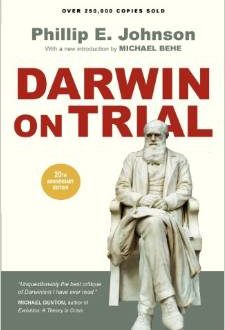Fun with Apocalyptic Literature
You are not alone if you’ve ever picked of your Bible to read the book of Revelation, stopped after a few verses and said with a quizzical look on your face: "What?!?" Somewhere between the beast, the trumpets, the little scroll, and the four horsemen, even the most faithful of Bible students can be intimidated and confused by the symbols in this self-described apocalypsis.
You are not alone if you’ve ever picked of your Bible to read the book of Revelation, stopped after a few verses and said with a quizzical look on your face: "What?!?" Somewhere between the beast, the trumpets, the little scroll, and the four horsemen, even the most faithful of Bible students can be intimidated and confused by the symbols in this self-described apocalypsis.
What you may not know is that the Book of Revelation is one of several writings that can be classified as Apocalyptic literature. Jewish apocalyptic writings include Daniel, 1 Enoch, 2 Enoch, 4 Ezra, 2 and 3 Baruch, the Apocalypse of Abraham, the Testament of Abraham, and the Sybylline Oracles. (The books in this list which are not italicized are found in the Old Testament or in the Apocrypha, while the italicized books are what we collectively call the OT pseudepigrapha.) There are also other Christian apocalyptic writings penned after Revelation (The Shepherd of Hermas is one you can find in most collections of the Apostolic Fathers.) Studying the characteristics, message, and purpose of these apocalyptic writings can help us understand the message and purpose of the Book of Revelation more clearly.
Writings classified as Apocalyptic share certain characteristics (as described by John J. Collins in his helpful book The Apocalyptic Imagination). First, their form is a narrative or story that describes how a certain revelation was received by an individual recipient (in Jewish apocalyptic writings this human recipient was a venerable figure from Israel’s history). Second, the main means of the revelation are visions and/or journeys to other worlds or heavenly realms. There are also often sections of teachings, dialogues, and sometimes a heavenly book that contains revelation. Third, there is an angel who helps interpret the visions or guides the person through the journey. Fourth, the content of the revelation often includes a review of history, and/or a glimpse into the supernatural world and the activities of supernatural beings, and/or a descriptions of eschatological events (final judgment of the wicked). I would add one more characteristic to Collins’ list which is present in many of these writings: the use of symbols to communicate the message.
What was the purpose and function of these Apocalyptic writings? While each was written in a unique circumstance it is fair to say that most of these texts show evidence of being intended for a community or a group in crisis and experiencing some level of persecution or oppression. The purpose then was often twofold. First, the purpose was to comfort and console the readers by reminding them of God’s divine rule over history. The first century reader of Revelation may be disheartened when she contemplates the might and power of Rome and may feel helpless in the face of the evil and oppression caused by the empire, but John’s Revelation reminds her Who is truly all-powerful and Who is in charge of history itself. The second purpose of apocalyptic literature is to exhort its readers to live in light of the supernatural truths revealed in its pages. Apocalyptic literature gives us a glimpse of the upper story not so we can simply wipe our brow and think "whew, at least in the end, I’ll be ok!" We are given the glimpse of the glories of heaven and the horrors of judgment so that we can live today in the pursuit of faithfulness, mercy, and justice.
I think we should try to read the book of Revelation with these two purposes in mind. Rather than wading through the symbols looking for signs and clues to future events (as we are so wont to do), try reading it devotionally next time, asking how God might be revealing his loving sovereignty and how he might be asking you to live today in light of that revelation.



3 Comments
Heather A. Goodman
So where does Dante fit in
So where does Dante fit in this? 😉
Gwynne Johnson
Comfort and Hope
I like your two purposes…comfort and hope and a challenge to persevere even in hard times. We need those reminders today.
Dan Bailey
Very nice
Nice, concise study of a difficult subject.